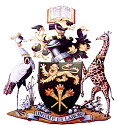Societal Structure and Organizational Structure as Predictors of Information and Communication Technology Users’ Beliefs About the Environment
Abstract
This investigated the influence of societal structure and organizational
structure on Information and Communication Technology users’ beliefs about
the environment in the Ugandan context. Environmental sustainability is
currently a call for urgent attention around the World. Our study was guided by
two specific objectives; to establish the effect of societal structure on ICT users’
beliefs about the environment in Uganda and to establish the effect of
organizational structure on ICT users’ beliefs about the environment in
Uganda. The study adopted the belief action outcome (BAO) model of Nigel P.
Melville. A cross-sectional quantitative research design, using a post-positivist
paradigm with a quantitative analytical survey research methodology was used.
We used a self-administered survey, with a questionnaire as the tool for data
collection. A sample of 384 respondents was selected using simple random
sampling and we obtained back 362 usable questionnaires. Correlations,
regressions and structural equation modeling were analyzed using SPSS and
AMOS. The results show that societal structure and organizational structure
have a positive significant effect on ICT users’ beliefs about the environment.
We make a contribution by adopting the BAO model in a developing country
context, in which literature about beliefs about the environment is limited. We
recommend that there should be more deliberate organizational top
management support and finances to run environmental conservation initiatives
that will ultimately impact individual’s beliefs about the environment.
Additionally, societal actors who influence other people should be empowered
to shape ICT users’ beliefs about the environment.
Keywords: Societal structure, organizational structure, beliefs about the environment, green IS.






